Fujian, nestled in the southeastern corner of China, is a province rich in culture, history, and breathtaking natural beauty. Here are some must-do activities that will make your Fujian trip unforgettable.
1. Explore Fuzhou, the capital of Fujian Province
The provincial capital is usually the first place tourists visit when they arrive. Fuzhou, the capital city of Fujian province, is a cultural and historical hub with plenty of attractions and activities that offer a unique experience. Here are some must-do activities in Fuzhou:
Visit the West Lake Park: This park is a beautiful green space in the city center, offering scenic views, cultural relics, and leisure facilities. Take a walk or rent a boat on the lake to enjoy the serene atmosphere.
Climb the Drum Mountain (Gushan): As the highest peak in Fuzhou, Drum Mountain offers breathtaking views of the city.
Explore the Three Lanes and Seven Alleys (Sanfang Qixiang): This historical area is famous for its traditional architecture and narrow lanes. Walk through the alleys to appreciate the unique charm of Fuzhou's old city.
Taste the Local Cuisine: Fuzhou cuisine is renowned for its delicate and refreshing flavors. Don't miss out on trying the famous dishes in Fuzhou.
Attend a Cultural Event: Fuzhou is known for its rich cultural heritage, and there are plenty of cultural events and performances held throughout the year. Attend a traditional opera performance, a tea ceremony, or a folk art exhibition to immerse yourself in the local culture.
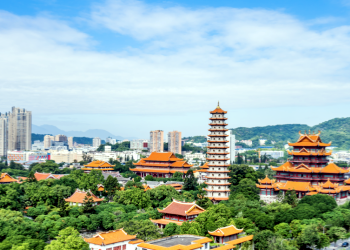
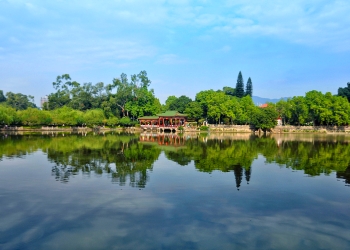
2. Explore the Wuyi Mountains and the Jiuqu River
Explore the Wuyi Mountains and the Jiuqu River: This World Heritage site offers a stunning blend of natural and cultural landscapes. Marvel at the rocky peaks, ancient tea plantations, and the famous Wuyi Rock Tea. Take a leisurely boat ride on the Jiuquxi River to appreciate the breathtaking scenery.
The Wuyi Mountains, also known as the "Mountain of Rocks and Clouds," are a range of granite peaks that rise dramatically from the surrounding plains. They are famous for their unique rock formations, lush vegetation, and ancient tea plantations. The mountains are also home to several important cultural sites, including temples and pagodas, that reflect the region's rich history and traditions.
Hiking: The Wuyi Mountains offer several hiking trails that lead to breathtaking viewpoints and ancient temples. The most popular trail is the Tiger Roaring Rock Trail, which takes you to the top of a jagged peak with panoramic views of the surrounding mountains and valleys.
Tea tasting: The Wuyi Mountains are famous for their high-quality rock tea, which is known for its unique aroma and flavor. Visit a local tea house or tea plantation to learn about the tea-making process and sample some of the region's finest teas.
Visiting temples: The Wuyi Mountains are dotted with ancient temples and pagodas that are dedicated to various deities and cultural heroes. Visit the Tianyou Peak Temple, the Yuyuan Rock Temple, or the Dahongpao Temple to appreciate the beauty of their architecture and learn about the local religions and beliefs.
The Jiuqu River, also known as the Nine-Bend River, is a beautiful river that flows through the Wuyi Mountains. It is famous for its gorges, waterfalls, and scenic bends that offer stunning views. The river is also a popular destination for rafting and canoeing, as it offers a challenging and exciting route through the mountains.
Rafting and canoeing: The Jiuqu River is a popular destination for rafting and canoeing enthusiasts. The river's rapids and bends provide a thrilling ride through the mountains, while the surrounding scenery adds to the experience.
Hiking along the river: There are several hiking trails that follow the Jiuqu River, offering scenic walks through the mountains. These trails lead to waterfalls, gorges, and other natural attractions that are worth exploring.
Photography: The Jiuqu River and its surrounding scenery are perfect for photography enthusiasts. Capture the beauty of the river's bends, waterfalls, and mountains with your camera to create lasting memories.
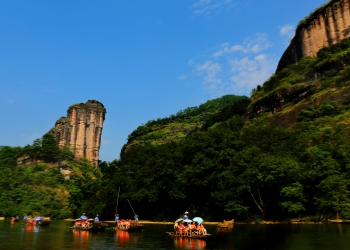
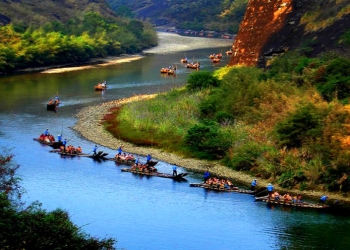
3. Visit Gulangyu
This idyllic island in Xiamen is a UNESCO World Heritage site known for its "International Style" architecture. Wander through the narrow lanes, admire the variety of architectural styles, and enjoy the music culture at the Piano Museum and the Organ Museum. Don't forget to capture the breathtaking views from the coastal subway line. Here are some must-do activities when visiting Gulangyu Island:
Explore the Architectural Landmarks: Gulangyu Island is famous for its unique architectural style, which combines both European and Chinese influences. Visit the historical buildings to appreciate their elegant facades.
Walk Through the Scenic Alleys: Gulangyu Island is famous for its narrow, cobbled alleys, which are lined with charming shops, cafes, and restaurants. Take a leisurely walk through these alleys, admiring the beautiful facades and exploring the unique shops that offer a variety of local crafts and souvenirs.
Visit the Museums: Gulangyu Island is home to several museums that offer insights into the island's history and culture. Visit the Gulangyu Island Music Museum to learn about the island's rich musical heritage, or the Gulangyu Island Piano Museum to see a collection of antique pianos from around the world.
Enjoy the Natural Beauty: In addition to its cultural attractions, Gulangyu Island also boasts stunning natural beauty. Visit the Sunlight Rock, the highest point on the island, to enjoy panoramic views of the surrounding sea and coastline. Or, take a stroll along the beach to appreciate the sea's beauty and feel the gentle breeze.
Attend a Cultural Performance: Gulangyu Island often hosts various cultural performances, such as concerts, dance performances, and drama performances. You can check the local event calendar and attend a performance to experience the island's vibrant cultural scene.
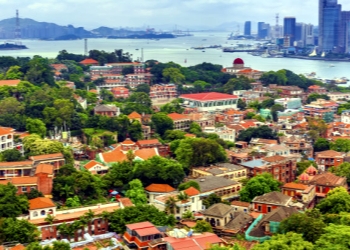
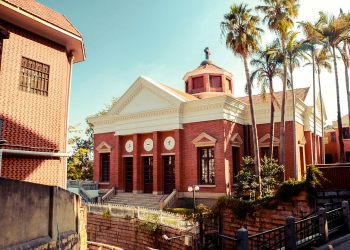
4. Taste the Local Delicacies
Fujian cuisine is a must-try for food lovers. Fujian is one of the southeast coastal provinces of China and has a rich food culture. Fujian food, also known as Min cuisine, is a unique and diverse cuisine that reflects the rich cultural heritage of Fujian province in China. It is characterized by its use of seafood, a focus on soup dishes, and a blend of sweet, sour, and salty flavors.
Southern Fujian cuisine pays attention to the fresh and delicate, with a strong focus on preserving the original flavors of the ingredients. Dishes from this region often feature a balance of sweet, sour, and salty flavors. You can try satay noodles, seafood soup, sipunculid worm jelly, and ginger duck in southern Fujian.
The west of Fujian is the main settlement of the Hakka people, so its food is also mainly Hakka flavor, and people eat delicacies from the mountain and eat less aquatic products. Western Fujian Hakka cuisine has always been famous for its original flavor.
Fuzhou cuisine is the mainstream of Fujian cuisine. It features a light taste, fresh aroma, sour and sweet flavors, a fine selection of ingredients, rigorous knife work, and careful attention to soup preparation.
See more Fujian food>>>
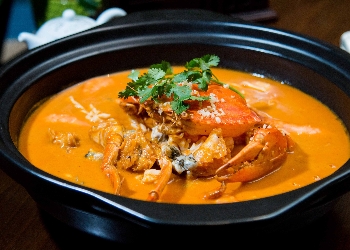
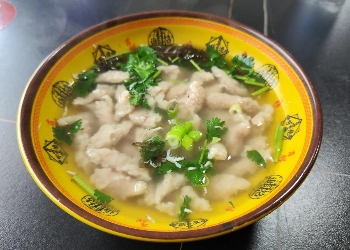
5. Visit the Historical Sites
Fujian is home to several historical and cultural sites that offer insights into the province's rich history. Visit the Fuzhou Three Lanes and Seven Alleys to experience the traditional architecture and culture. The Lin Zexu Memorial Hall is also worth a visit.
Kaiyuan Temple: Founded in the Tang Dynasty, it is the largest temple in Fujian Province.
Anping Fort: Founded in the Song Dynasty, it was an important trading port on the ancient Maritime Silk Road.
Qingjing Mosque: Founded in the Northern Song Dynasty, it is a famous Islamic temple in Quanzhou.
Tianhou Palace: Founded in the Tang Dynasty, it is an important spreading place of Mazu culture.
Three lanes and seven alleys: The historical and cultural district of Fuzhou, consisting of three lanes and seven alleys, is the epitome of Fuzhou ancient city culture.
Yongfu Tulou, one of the representatives of Fujian Tulou, is located in Yongding District, Longyan City, Fujian Province. It was built in the Song Dynasty and has a history of more than 1,000 years.
These are just a few of the historical sites in Fujian that offer a glimpse into the region's rich cultural heritage. Visiting these sites will not only allow you to appreciate the beauty of their architecture and landscapes but also to gain insights into the lives and traditions of the people who have inhabited this land for centuries.

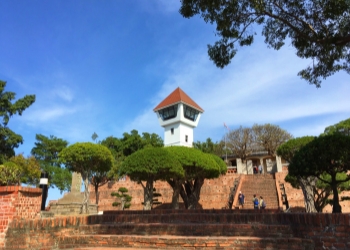
6. Enjoy the Natural Scenery
Fujian province in China boasts a diverse range of natural scenery that offers breathtaking views. Hike in the Wuyi Mountains to admire the lush greenery and breathtaking views. Visit the Taimu Mountain and the Yundang Mountain for more scenic adventures.
Wuyi Mountain National Park: This park, located in the northern part of Fujian, is renowned for its stunning natural beauty. It features dense forests, clear streams, and breathtaking mountains that offer hiking and exploration opportunities. The park is also famous for its unique cultural heritage, including the suspended coffins and ancient temples.
Liangye Mountain in Wuping, Longyan City: This scenic spot is known for its lush forests and breathtaking waterfalls. Hiking trails lead through the dense foliage, offering stunning views of the surrounding mountains and waterfalls.
Jinjiang Coastal Area in Quanzhou City: This area boasts beautiful beaches and a scenic coastline. Visitors can enjoy the sea breeze, stroll along the beach, or try various water sports activities.
Yongfu Tea Fields and Cherry Blossoms in Zhangping, Longyan City: This scenic spot is famous for its vast tea fields and cherry blossoms. In spring, the cherry blossoms bloom, creating a romantic and picturesque scene. Visitors can also enjoy tasting the local tea and experiencing the charm of rural life.
Sanqing Mountain in Ningde City: This mountain is known for its grand scenery and diverse ecosystems. It offers hiking trails that lead through dense forests, across rocky ridges, and to breathtaking viewpoints.
In addition to these attractions, Fujian also boasts various other natural landscapes such as lakes, rivers, and wetlands that offer unique experiences for visitors. Whether you prefer hiking in the mountains, relaxing on the beach, or exploring dense forests, Fujian has something for everyone.
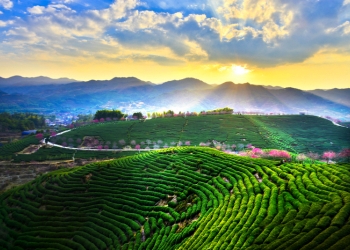
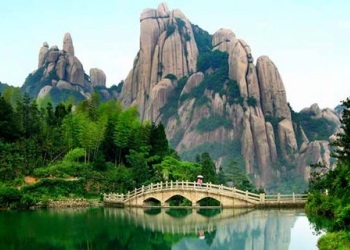
7. Experience the Folk Culture
Fujian is renowned for its vibrant folk culture, which is reflected in various traditional performances and crafts. Watch the softwood carving in Fuzhou, the puppet shows in Quanzhou, and the dragon and lion dances during festivals.
Dragon Boat Racing: During the Dragon Boat Festival, which falls on the fifth day of the fifth lunar month, people in Fujian gather on rivers and lakes to participate in dragon boat races. This traditional activity is a symbol of unity and strength, and it’s an exciting spectacle to watch.
Worshipping the God of Wealth: The God of Wealth, also known as the Kitchen God, is highly venerated in Fujian. During the New Year and other important occasions, families will offer incense and prayers to the God of Wealth, hoping for prosperity and good fortune in the year ahead.
Tea Culture: Fujian is a major tea-producing region in China, and the local people have a profound understanding and love for tea. They pay great attention to the selection of tea leaves, brewing techniques, and the choice of tea sets. Visiting a tea house in Fujian is an excellent way to experience this rich tea culture.
Folk Dance and Opera: Fujian has a variety of folk dances and operas that are performed during festivals and celebrations. These performances often feature vibrant music, colorful costumes, and elaborate choreography, reflecting the cultural heritage and artistic talent of the local community.
Folk Handicrafts: The people of Fujian are skilled in various folk handicrafts, such as embroidery, pottery, and lacquerware. These handicrafts are often decorate with intricate designs and are highly valued for their craftsmanship and artistic beauty.
Traditional Festivals and Rituals: Fujian has a number of traditional festivals and rituals that are celebrated throughout the year. These include the Mid-Autumn Festival, when families gather to admire the moon and eat mooncakes; the Spring Festival, when people give red envelopes and offer prayers for a prosperous new year; and the Ghost Festival, when people burn incense and paper money to honor their ancestors.
Visiting Fujian and experiencing its folk culture is a rewarding and enriching experience.
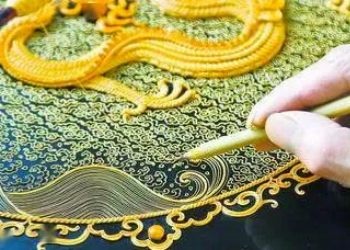
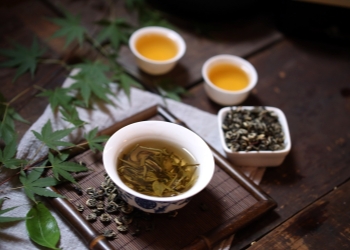
Conclusion
Fujian offers a diverse range of must-do activities that cater to different interests and preferences. From exploring natural wonders and historical sites to tasting local delicacies and experiencing the folk culture, there's something for everyone in this charming province. So, pack your bags and head to Fujian for an unforgettable adventure!




































